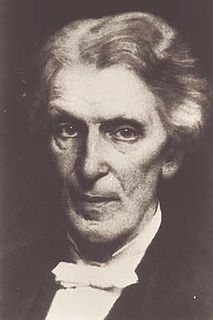A Quote by Aldous Huxley
There are confessable agonies, sufferings of which one can positively be proud. Of bereavement, of parting, of the sense of sin and the fear of death the poets have eloquently spoken. They command the world's sympathy. But there are also discreditable anguishes, no less excruciating than the others, but of which the sufferer dare not, cannot speak. The anguish of thwarted desire, for example.
Related Quotes
It was in His parting sorrow--that Jesus asked His disciples to remember Him; and never was entreaty of affection answered so; for ever since has His name been breathed in morning and evening prayers that none can count, and has brought down some gift of sanctity and peace on the anguish of bereavement, and the remorse of sin.
What is required is the finding of that Immovable Point within one's self, which is not shaken by any of those tempests which the Buddhists call 'the eight karmic winds': 1-fear of pain, 2-desire for pleasure; 3-fear of loss; 4-desire for gain; 5-fear of blame, 6-desire for praise; 7-fear of disgrace; [and] 8-desire for fame.
What is the meaning of 'gossip?' Doesn't it originate with sympathy, an interest in one's neighbor, degenerating into idle curiosity and love of tattling? Which is worse, this habit, or keeping one's self so absorbed intellectually as to forget the sufferings and cares of others, to lose sympathy through having too much to think about?
There is nothing that Nature has made necessary which is more easy than death; we are longer a-coming into the world than going out of it; and there is not any minute of our lives wherein we may not reasonably expect it. Nay, it is but a momen'ts work, the parting of soul and body. What a shame is it then to stand in fear of anything so long that is over so soon!
A precept or command is a general teaching of God, obligating every man under pain of mortal sin - namely, in cases in which he has fallen away from the command. Hence, the saints who for a period of their life lived hypocritically sinned mortally for that period. So also the damned, by persistent false living, sin persistently in Hell.
I read, I study, I examine, I listen, I reflect, and out of all of this I try to form an idea into which I put as much common sense as I can. I shall not speak much for fear of saying foolish things; I will risk still less for fear of doing them, for I am not disposed to abuse the confidence which they have deigned to show me. Such is the conduct which until now I have followed and will follow.
The fact would seem to be, if in my situation one may speak of facts, not only that I shall have to speak of things of which I cannot speak, but also, which is even more interesting, but also that I, which is if possible even more interesting, that I shall have to, I forget, no matter. And at the same time I am obliged to speak. I shall never be silent. Never.
Sorrow, terror, anguish, despair itself are often the chosen expressions of an approximation to the highest good. Our sympathy in tragic fiction depends on this principle; tragedy delights by affording a shadow of the pleasure which exists in pain. This is the source also of the melancholy which is inseparable from the sweetest melody. The pleasure that is in sorrow is sweeter than the pleasure of pleasure itself.
[There are, in us] possibilities that take our breath away, and show a world wider than either physics or philistine ethics can imagine. Here is a world in which all is well, in spite of certain forms of death, death of hope, death of strength, death of responsibility, of fear and wrong, death of everything that paganism, naturalism and legalism pin their trust on.






































